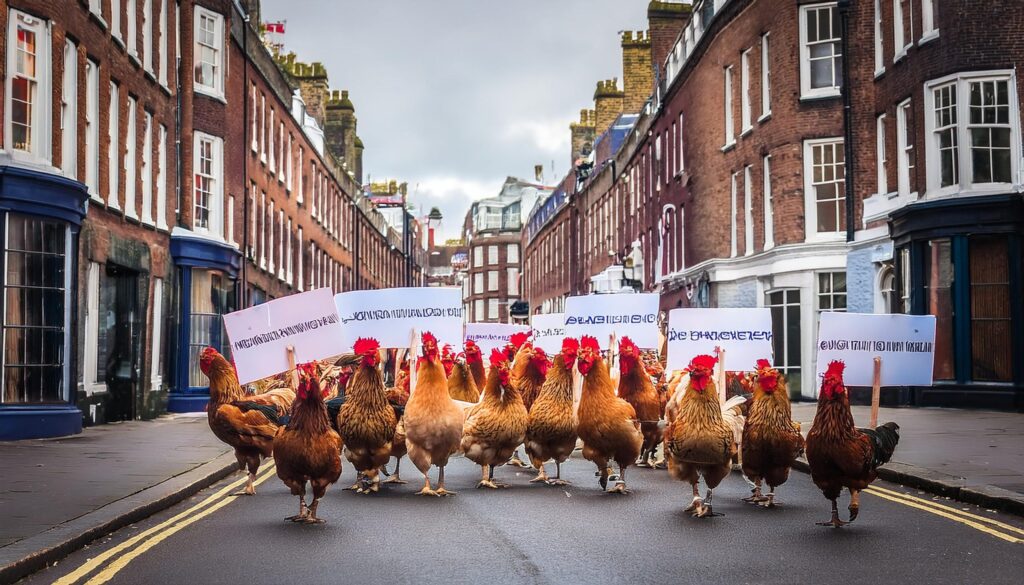On October 1st, the UK instituted an unprecedented regulation known as the “Chicken License,” which mandates the registration of all poultry keepers, irrespective of the size of their flock. Previously, the threshold for registration was set at 50 birds or more, but a recent change enacted by the Department for Environment Food and Rural Affairs (DEFRA) has redefined a “flock” to include any individual bird. This shift has implications for anyone owning outdoor birds, including chickens, as non-compliance now entails potential fines and the risk of poultry confiscation.
The underlying rationale for this regulatory shift is framed as a public health measure aimed at preventing the spread of avian influenza and protecting both birds and humans. However, skepticism abounds, with many interpreting the regulation as a means of increasing government oversight on private poultry ownership. Critics argue that such measures may ultimately serve to undermine self-sufficiency in food production, particularly in a climate where alternative food sources have become increasingly valued.
As the deadline approached, a notable reaction emerged from the public, who exhibited a blend of humor and resistance towards the new regulations. Thousands flocked to the DEFRA website to register their poultry, but not in a serious manner. Instead, participants overloaded the registration platform with humorous entries, including the registration of frozen chicken products, rubber fowl, and even unhatched eggs. This tongue-in-cheek approach underscores a prevailing attitude of defiance against what many view as draconian regulations.
The wave of online registrations serves as a reflection of the public’s dissatisfaction and the absurdity they perceive in the government’s directive. Engaging with the authorities in such a quirky manner illustrates a form of protest, where individuals take what could be an oppressive regulation and turn it into a spectacle of satire. The creativity displayed by the UK populace symbolizes a collective pushback against what they perceive as unnecessary bureaucratic overreach.
Moreover, the implications of this regulation extend beyond mere inconvenience, touching on larger issues of personal freedom and autonomy in self-sustaining practices. In an era where many people are seeking to be less dependent on large corporations for their food sources, the enforcement of such regulations may serve to push individuals away from backyard farming and poultry keeping, ultimately raising questions about food security and independence. The government’s focus on registration could inadvertently stifle a movement that encourages organic and local food practices among the population.
In conclusion, while the UK government’s introduction of the “Chicken License” may be portrayed as a public health initiative, the widespread public reaction suggests a significant level of distrust and dissatisfaction with governmental control over personal food production. The humorous registrations present an opportunity for communities to connect over shared frustrations concerning self-sufficiency, autonomy, and accountability in the face of perceived overregulation. As citizens navigate these new rules, the broader discourse on food sovereignty and individual rights will undoubtedly continue, defining the relationship between people, their food sources, and government authority.

